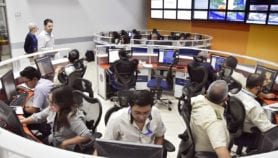By: Wagdy Sawahel
Send to a friend
The details you provide on this page will not be used to send unsolicited email, and will not be sold to a 3rd party. See privacy policy.
A communication network has been launched that will enable researchers from the Middle East and North Africa to link directly into European research networks.
The network, EUMEDCONNECT2, aims to serve the scientific and medical research communities across the southern Mediterranean and reduce the digital disparity between it and Europe.
The network started operating last month (4 November) after an announcement at the second EU-Med event entitled ‘e-Infrastructures in the Mediterranean’, held in Amman, Jordan.
The European Commission contributed around US$5 million towards the costs, with a similar amount contributed by the Mediterranean partner countries — Algeria, Egypt, Jordan, Morocco, Palestine, Syria and Tunisia.
EUMEDCONNECT2 offers a direct link to the pan-European research and education communication network (GEANT2), enabling Arab researchers to collaborate with their European counterparts.
"We estimate some two million users are now connected," says David West, EUMEDCONNECT2 project manager at the UK-based DANTE (Delivery of Advanced Network Technology to Europe), which is coordinating the project.
The system will support e-education through the development of centres devoted to specialised topics, and will support scientific workgroup meetings with video-conferencing.
The network will also support environmental and climatic research by providing access to remote databases with climate-related observational and geographic information system (GIS) data and facilitating exchange of huge datasets.
EUMEDCONNECT2 will also support e-health projects. It will be possible to share best medical practices and to facilitate practical telemedicine such as remote consulting, providing direct access to medical databases and libraries, fostering drug design and allowing clinical trials to be conducted across various research sites.













